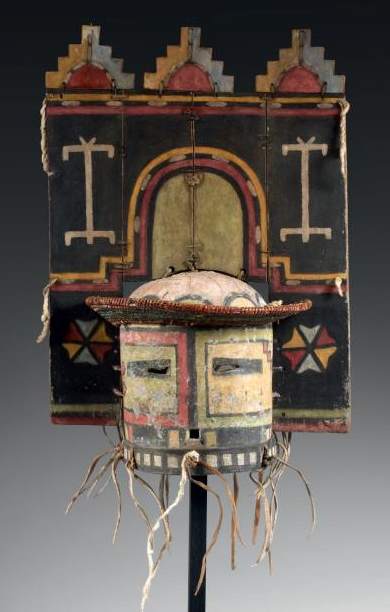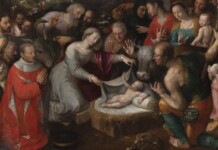 The U.S. Embassy tried to delay the auction of sacred Hopi and Apache artifacts in Paris but a French judge ruled that the items, irreplaceable and historic, would be sold to the highest bidder. More than 100 American Indian artifacts (24 of which were masks of religious value that were stolen many years ago) were about to go on sale December 9.
The U.S. Embassy tried to delay the auction of sacred Hopi and Apache artifacts in Paris but a French judge ruled that the items, irreplaceable and historic, would be sold to the highest bidder. More than 100 American Indian artifacts (24 of which were masks of religious value that were stolen many years ago) were about to go on sale December 9.
That’s when Annenberg Foundation Vice President and Director Gregory Annenberg Weingarten made the unprecedented decision to intervene. He knew he had to keep the plan a secret, even from the Hopis, so as not to inflate the prices.
In April of this year, the French auctioned 70 artifacts for €930,000, ignoring pleas and protests around the world. An attorney, who acted for the group Survival International and the Hopi in both court cases, bought and returned a sacred tribal artifact last summer. He also bought last Monday one artifact for €13,000 and intends to return it to the Hopi.
This time, 24 sacred relics were rescued by the Annenberg Foundation – totaling $530,000 – for the sole purpose of returning them to their rightful owners.
“As an artist, I was struck by the awesome power and beauty of these objects,” said Annenberg’s Weingarten. “But these are not trophies to have on one’s mantel; they are truly sacred works for the Native Americans. They do not belong in auction houses or private collections. It gives me immense satisfaction to know that they will be returned home to their rightful owners, the Native Americans.”
The New York Times reported details on the suspenseful auction process, which had Annenberg staffers in LA bidding by phone and a lookout in the Parisian auction room itself.
“The tribe, which had gone to court to block both sales, believes the items (all of which are more than a century old) are not simply religious, but living entities with divine spirits.
The Native American Graves Protection and Repatriation Act gives federally recognized Native American tribes a way to reclaim funerary objects and ceremonial items from federal agencies and museums in the United States. The law, however, does not apply to items held internationally.



















